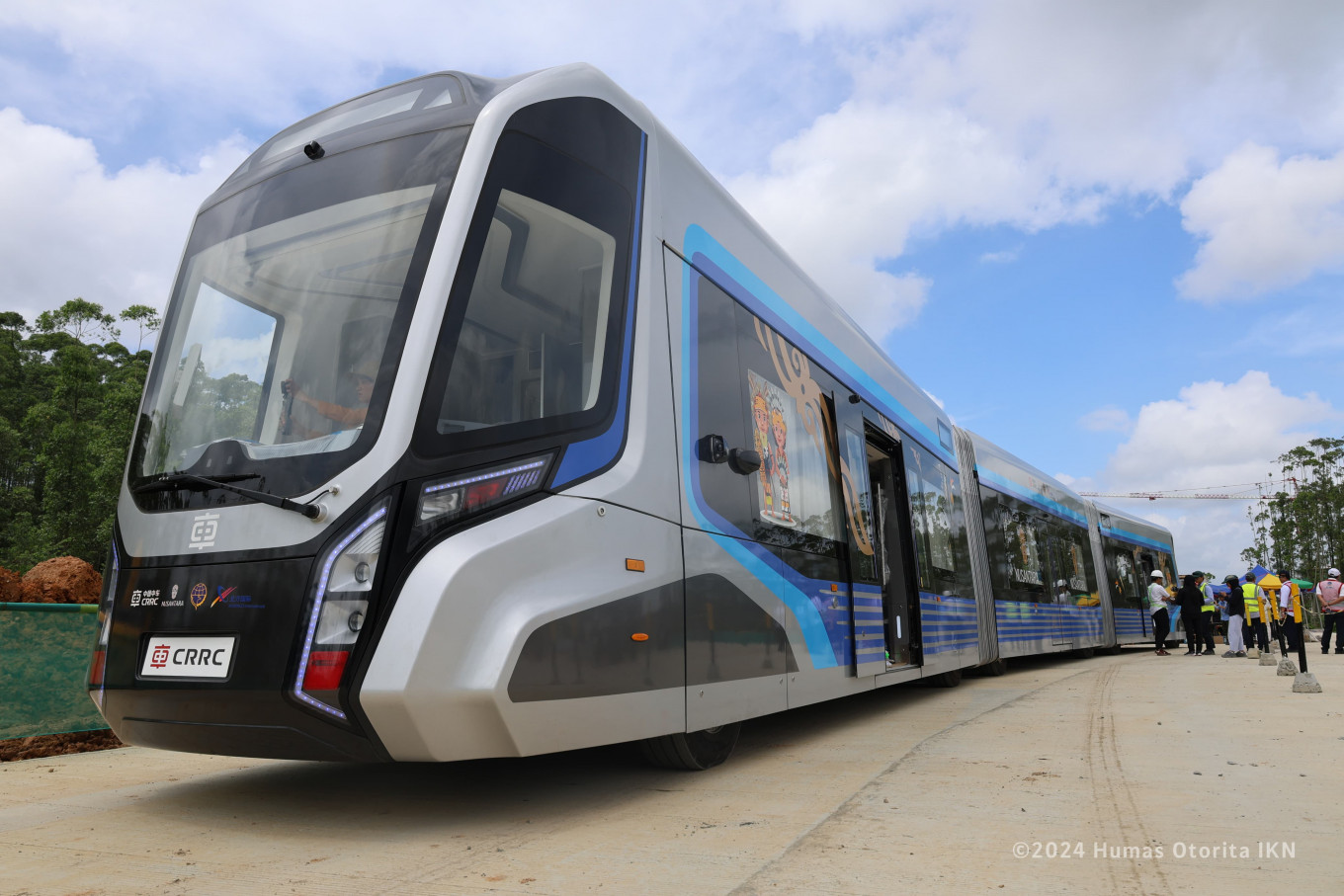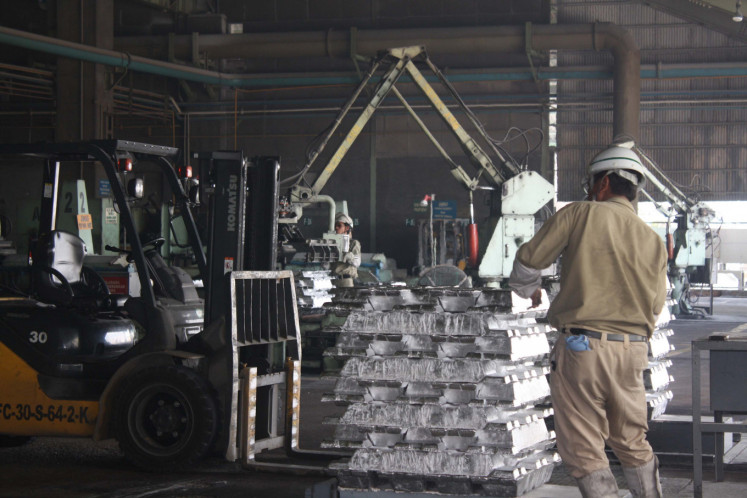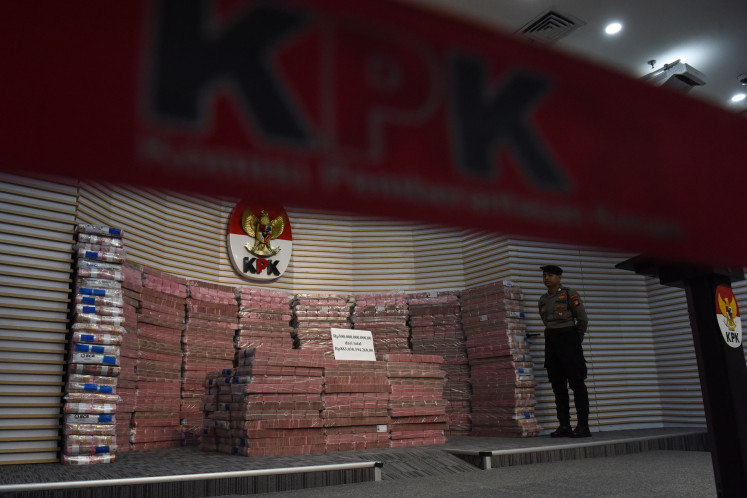Popular Reads
Top Results
Can't find what you're looking for?
View all search resultsPopular Reads
Top Results
Can't find what you're looking for?
View all search resultsIndonesia to return ART units to China
Trials conducted by the IKN Authority found that the system's autonomous mode was not performing as expected because manual intervention from the driver was still required in emergency situations.
Change text size
Gift Premium Articles
to Anyone
I
ndonesia will return Chinese-made autonomous rail rapid transit (ART) trains after the trains failed to operate autonomously during trials in September and October in the future capital city Nusantara.
A cross between a train, a tram and a bus, ART is an intelligent public transport system that uses sensors and rubber wheels and can operate with or without a track. The transport system is produced by state-owned manufacturer China Railway Rolling Stock Corporation (CRRC).
Tonny Agus Setiono, the IKN Authority's director of digital ecosystem development, said the authority was still discussing the plan to return the ART train units to China with the Transportation Ministry.
"The return will be carried out this year. However, it depends on the Transportation Ministry whether to continue [the project] or not," Tonny said on Sunday, as quoted by kompas.com.
The IKN Authority conducted a trial on the ART train from Sept. 12 to Oct. 22 in Nusantara’s Central Government District (KIPP) along a route that passes coordinating minister offices one to four, East Nationhood Axis and West Nationhood Axis.
Meanwhile, Mohammed Ali Berawi, IKN Authority green and digital transformation deputy said the assessment team found that the autonomous mode was not performing as expected because manual intervention from the driver was still required in emergency situations.
He also noted that drivers still needed to keep their hands on the steering wheel and be ready to switch from automatic to manual control.
Additionally, there was no speed or braking plan for specific routes or any programmable route control. The autonomous braking system also failed to demonstrate the ability to automatically brake, slow down or issue warnings when obstacles or objects crossed in front of the train.
"This shows that the developer is not confident enough in the reliability of its autonomous control system," Ali told kompas.com on Nov. 7.
In response to the plan to return the ART unit, the Transportation Ministry said the government would not suffer any loss if the project was stopped because the ART vendor bore the trial costs.
Ministry spokesperson Budi Rahardjo said that his office has no issue if the evaluation results from the IKN Authority show that the autonomous train does not meet the required standards.
"If the ART is found not to meet the evaluation standards set by the IKN Authority, it's not a problem because the state won’t lose anything," Budi said on Wednesday, as quoted by Antara.
The ministry’s railway director general Risal Wasal said on Thursday that the train system was not up to specifications set by the IKN Authority and that the results of proof of concept showed that the autonomous system did not function well
The development of ART in Nusantara was initiated by then-transportation minister Budi Karya Sumadi after he made a visit to China in mid-January, which included a stop at the CRRC. The procurement project of three ART units is worth Rp 210 billion (US$ 13.2 million).
Budi said in January that each train would carry 307 passengers and could utilize public roads instead of relying on a dedicated track. Despite having a top speed of 70 kilometers per hour, it will be operated at 40 kph.
Besides Nusantara, Budi also set plans to develop the ART system to combat traffic congestion in Bali’s tourist hotspot of Kuta. The announcement came only days before Budi ended his tenure as transportation minister.
The ART projects in Nusantara and Bali mark the third time Indonesia has chosen Chinese trains for its public transit system.
Indonesia has built a notable relationship with China in developing train infrastructure, starting with the Whoosh high-speed railway (HSR) from Jakarta to Bandung, which started operations in October of 2023 after years of construction delays.
A subsidiary of state-owned railway operator PT Kereta Api Indonesia (KAI) signed an agreement in February with CRRC Sifang Co. Ltd. to purchase three trains for Rp 783 billion, which it would use to replace the aging fleet of the Greater Jakarta Commuter Line. Previously, Indonesia relied on Japanese trains for its commuter train services. Similarly, the country once chose Japan to work on its HSR project before it switched to China. (jan)











